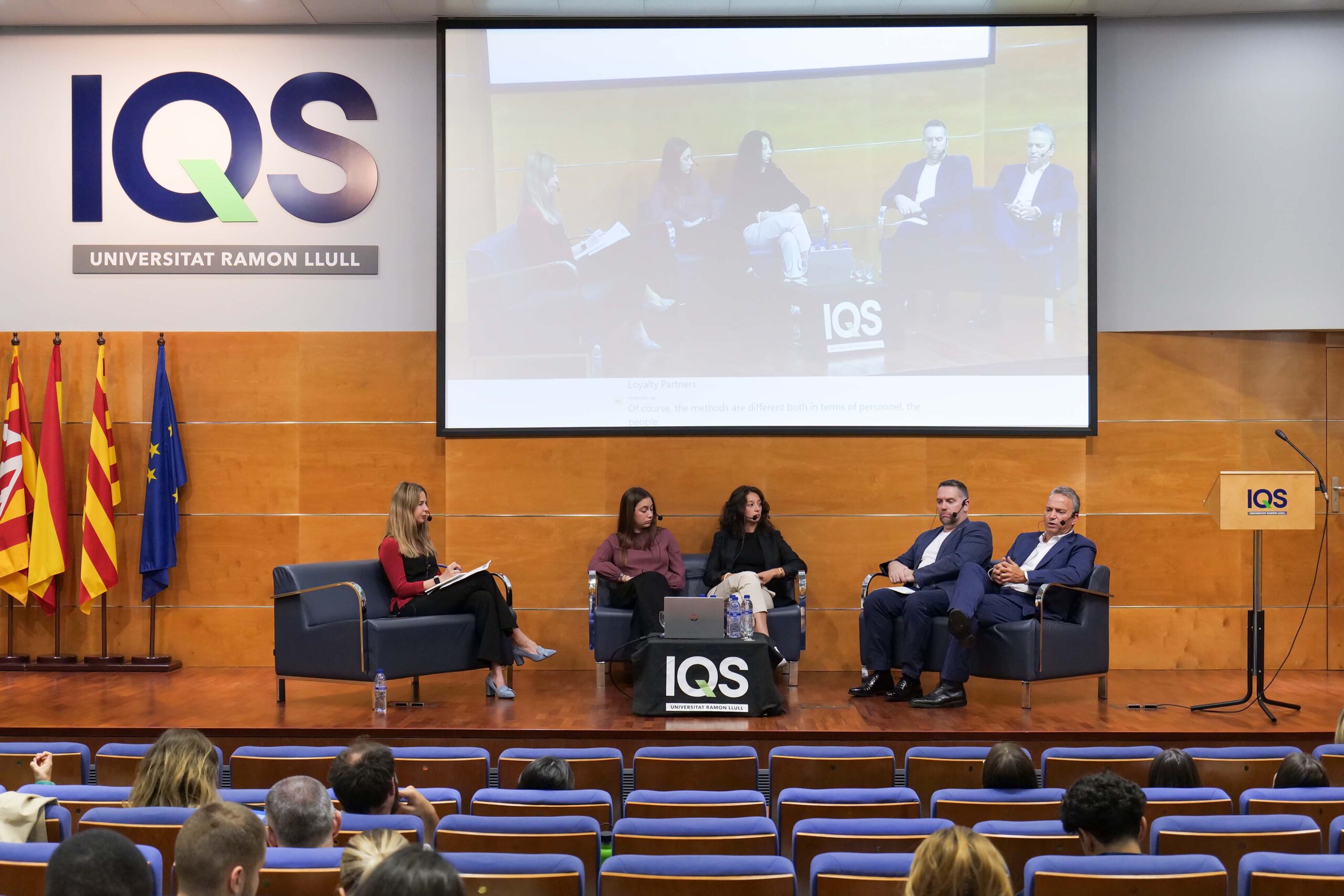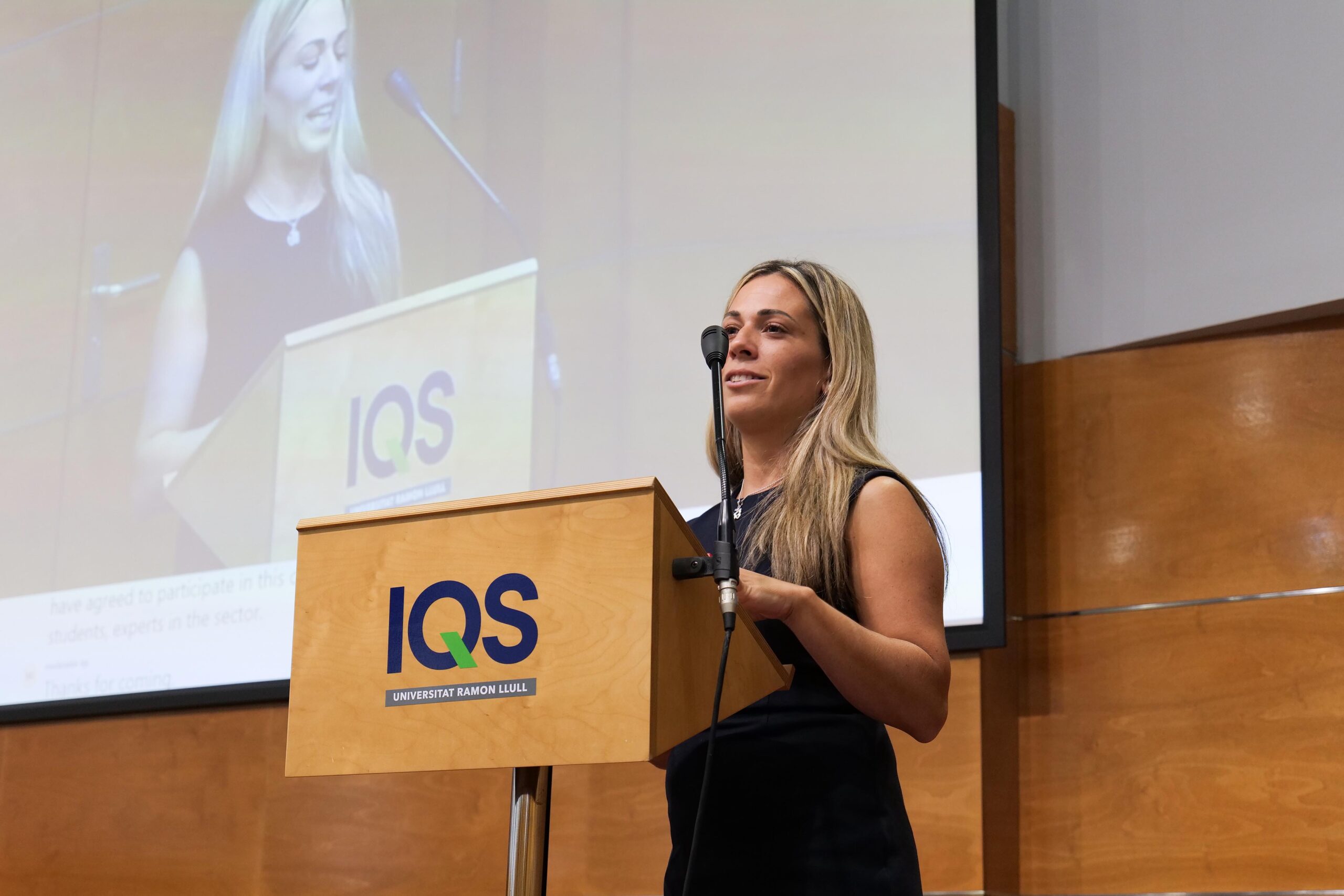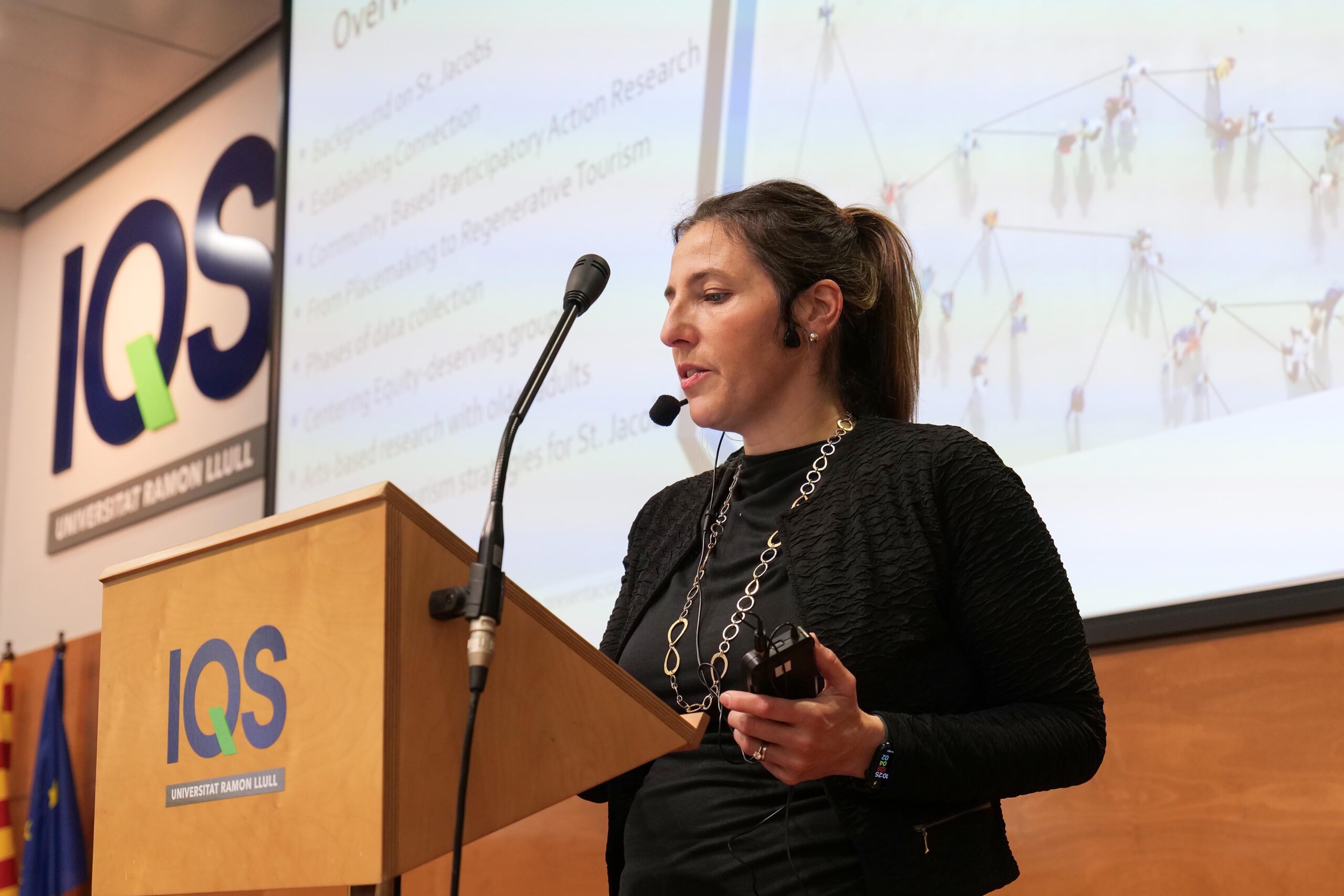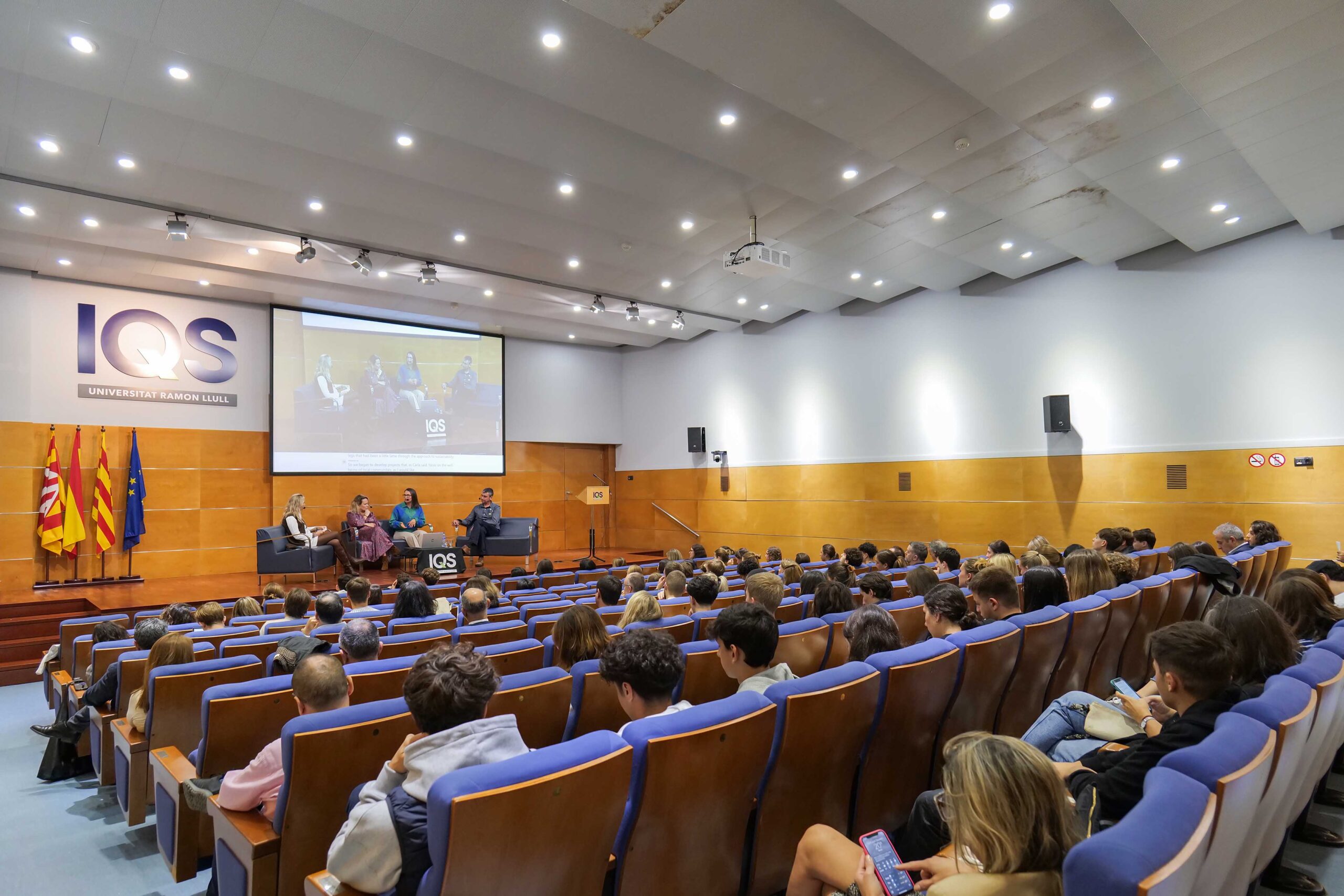The 3rd Annual Conference held by the Department of Tourism, Sustainability, and Innovation at IQS-URL, organized in collaboration with the Barcelona City Council, brought together leading national and international experts to explore the keys to more sustainable and regenerative tourism. Under the slogan “Reassessing and regenerating the tourism sector,” the event focused on people from a twofold perspective: on the one hand, those who make up the staff of tourist establishments, and, on the other hand, the residents who live in various tourist locations. In short, the event sought to shed light on a more human and social dimension that involves new challenges, not to mention caring for the environment as well.
Dr Salvador Borrós, Director of IQS, Dr Flavio Comim, Dean of the IQS School of Management, and Dr Gilda Hernández-Maskivker, Director of the IQS Department of Tourism, Sustainability, and Innovation, officially welcomed attendees to the event as a space for reflection. “At a challenging time for tourism, we are once again focusing on social sustainability as an element to reposition the sector,” said Hernandez-Maskivker.
Tourism and its impact on local communities
Dr Karla Boluk, Associate Professor with Department of Recreation and Leisure Studies at the University of Waterloo in Canada and Visiting Professor at York St John University in York, UK, opened the event with an inspiring presentation entitled “Redesigning and Regenerating Tourism with Care and Intentionality,” in which she underscored the importance of putting communities at the centre of regenerative tourism.
Boluk shared experiences from her research with the community of Saint Jacobs, a small town near Waterloo, where she has worked for the past eight years. Based on these data, she explained that tourism has the potential to be an agent of positive change but for this to be true, it is necessary to ensure that the benefits directly impact local communities. “It is crucial to empower all communities, including marginalized groups, so their perspectives are integrated into the design of tourism projects that generate positive economic and cultural changes,” she argued.
During her presentation, she revealed that in the field of tourism, inclusion and diversity are fundamental for the future of the sector. In conclusion, she proposed the creation of strategies that invite better use of local economies, ensuring that the benefits from tourism are reinvested in communities, a formula that would support both economic and cultural regeneration.
Boluk’s presentation laid the groundwork for the continuation of an intense day that was complemented by two roundtable events. During this part of the conference, experts, teachers, and professionals in the sector analysed the current situation, needs, and challenges facing the sector based on their experience. They also set out strategies aimed at putting people at the centre of the tourism transformation, aiming to take care of social ecosystems and promoting shared value.
“From ego to eco”
Entitled “Regenerative tourism: creating value with a comprehensive approach,” the first roundtable brought together Lucía Hernández, an expert in ecosystems and regenerative design, Gerard Costa, director of Anigami, and Carla Cama Cabasés, director of local projects at Aethnic. The participants, moderated by Dr Daniela Freund, a researcher and professor at IQS, agreed on the need for a paradigm shift, a change in approach in line with the ideas presented by Dr Boluk in the opening presentation.
With this in mind, Hernández stressed that “regenerative tourism does not consist of creating a standard type of activity, but a profound systemic transformation that involves understanding and measuring the positive impact on host communities.” Costa said that true regenerative tourism “is only possible from a regenerative mindset, which enables us to value and connect with diversity and transcend individuality. Moving from ego to eco.”
In line with this vision, Carla Cama offered a practical guide to generating meaningful experiences for tourists and the community: “It is essential for visitors to be integrated into the daily life of the destination, for them to create links with residents, and participate in activities from which they can learn.”
As to future trends in the tourism sector, Hernández stressed the importance of creating activities that allow people to enjoy the cultural, architectural, artistic, and social heritage of each destination, as well as promoting new styles and job opportunities in line with the paradigm shift that the sector must undergo, focused on caring for the environment and the community
The value of human capital
With a focus on the community and people, the discussion moved on to the second roundtable of the day, entitled “Regeneration with purpose: putting people at the centre,” featuring participation by Marc Rodríguez, CCIB Director General, José Ruiz, Human Resources Director at W Barcelona, Alex Petrova, creative projects, marketing, and events, and Agustina Paradela, staff/assistant at EY Technology Consulting. Moderated by Dr Itziar Ramírez, a researcher and professor at IQS, the participants explored the essential role of human capital in the renewal of tourism in an interesting contrast between the talent and expectations of new generations and the experience of veteran professionals in the sector.
Petrova and Paradela, who graduated in 2022, shared their initial work experiences in the sector with the participants. Both admitted some frustration at working conditions that do not meet expectations and internships, often unpaid, in which workers are not taken care of and there is no opportunity for development, a lack of feedback from superiors, and in which the training consists of “figuring it out.”
“What is going wrong in the industry that makes the new generations who are entering the workforce frustrated in terms of their expectations?” Dr Ramírez then asked. “Historically, this sector has tended to erroneously consider resources only in terms of profit, when, in reality, it is a sector based on people and that capital must be taken care of,” Rodriguez said.
As to Ruiz, he called on the industry to adapt and support young people who join the sector, ensuring that they can gain significant experience in their initial internships. “Companies must understand that young people who are joining them seek guidance and learning opportunities. We must guide them and look after their professional development,” concluded Ruiz. “These are nice suggestions and words, but what are companies doing about it?” replied Petrova. “Things are changing, but we are moving like a slow and heavy industry when it comes to solving problems and challenges such as the paradigm shift that the sector now demands,” Rodriguez admitted.













